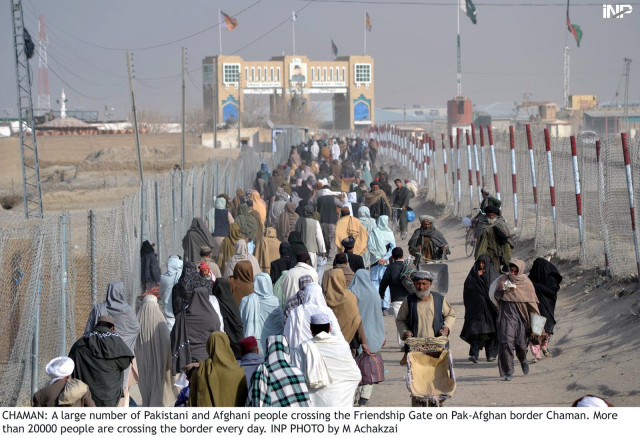Rehabilitating Afghan refugees
The government must ensure that there are no forced evacuations from Afghan settlements or arbitrary repatriations

Pakistan’s role as a host must be recognised and all assistance given to ensure a timely, safe and compassionate return for all. PHOTO: INP

Many Afghans have lived here for most or all their lives, have been born, raised and married here, and this is the only home known to them. They must be treated with the empathy and humanity that is deserving for all when forced to move from one home to another. Although Pakistan has hosted Afghans for decades, the harassment of refugees at the hands of the police and other law-enforcement agencies remains a frequent problem, as was witnessed following the attack on the Army Public School in Peshawar on December 16. The narrative of Afghan refugees should also be included in the public narrative, for many in Pakistan equate the deteriorating law and order problem to the presence of refugees in the country. This is not only a very simplistic explanation but ignores the complex situation that Pakistan is faced with and avoids looking at the problem within. Even if all refugees are sent back by the end of the year, it is safe to say that Pakistan’s law and order problems will not end overnight.
The provincial governments concerned must ensure that there are no forced evacuations from Afghan settlements or arbitrary repatriations. All such moves must be planned, systematic and done through the UNHCR. At the same time, the international community must also support Pakistan as it still hosts the largest refugee population in the world and has done so for the longest period of time. Pakistan’s role as a host must be recognised and all assistance given to ensure a timely, safe and compassionate return for all.
Published in The Express Tribune, January 19th, 2015.
Like Opinion & Editorial on Facebook, follow @ETOpEd on Twitter to receive all updates on all our daily pieces.














COMMENTS
Comments are moderated and generally will be posted if they are on-topic and not abusive.
For more information, please see our Comments FAQ